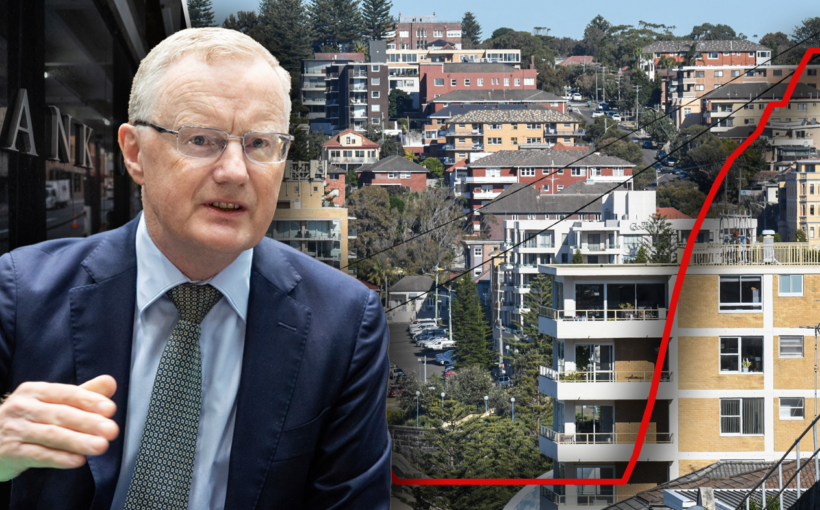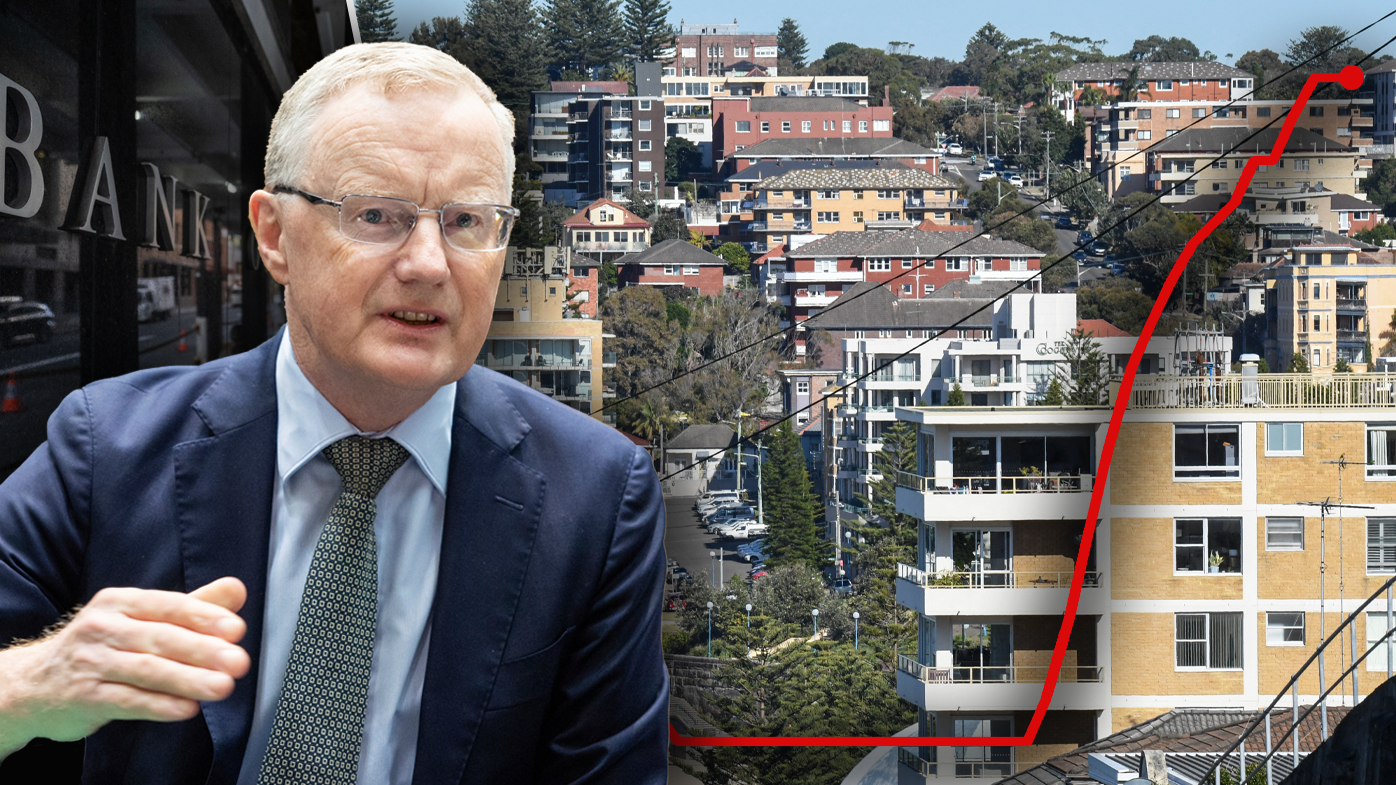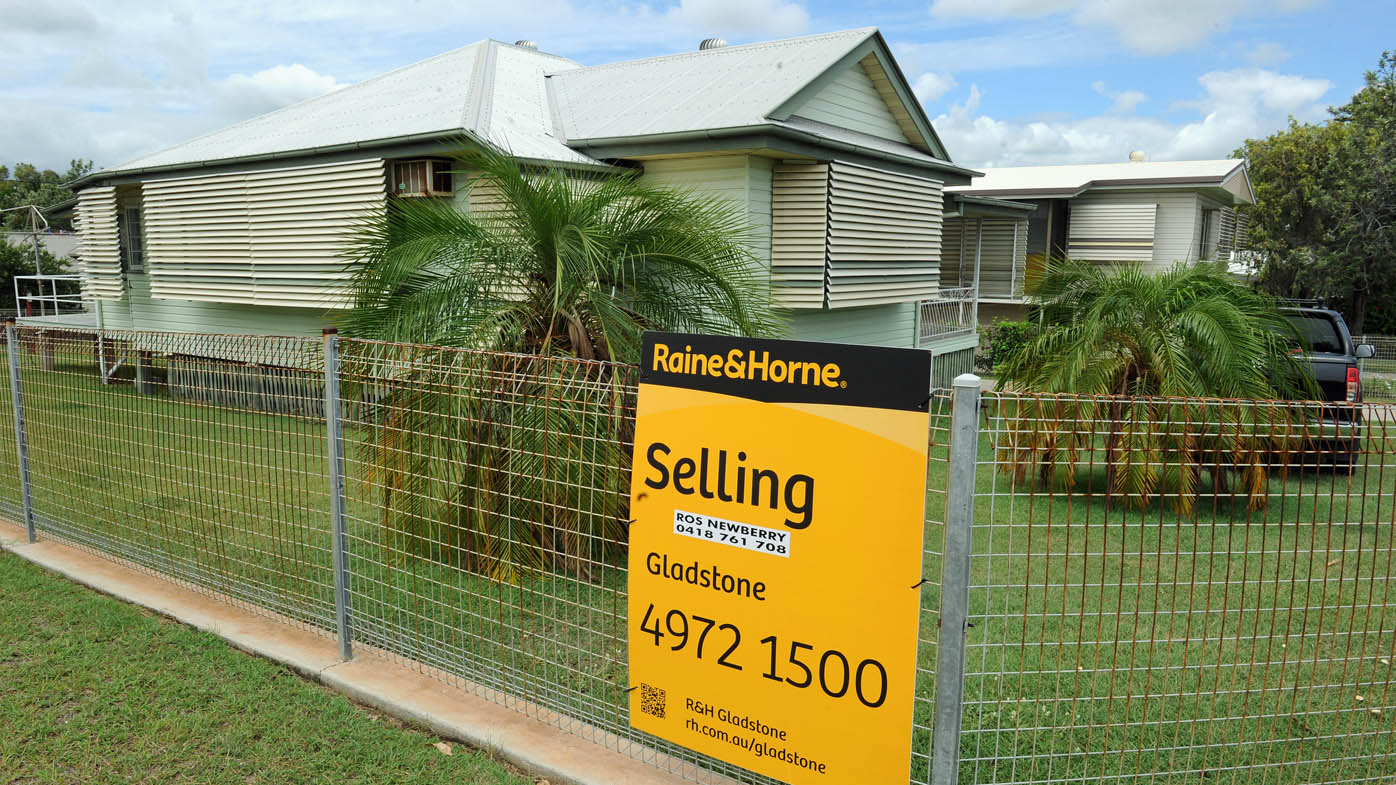Hundreds of thousands of Aussie borrowers can breathe a sigh of relief after the Reserve Bank of Australia (RBA) decided to keep the nation's cash rate on hold for a third month running.
Meeting at the bank's Martin Place headquarters this afternoon, the RBA board decided to keep interest rates on hold at 4.1 per cent.
Today's meeting marks the last time Governor Philip Lowe will hand down a monetary policy decision, following a decision by the treasurer that his seven-year term would not be extended.
READ MORE: Inflation at lowest level since early 2022, easing fears of rates rise
Largely unknown for much of his career, Lowe's name became recognised in households across the nation during the COVID-19 pandemic – and more controversially after it.
During that time, Lowe and the RBA board cut interest rates to a historic low of 0.1 per cent to stimulate the economy, followed by 12 interest rate hikes in as many months to control wildly spreading inflation.
He attracted a large swathe of criticism after he was perceived to be telling homeowners – with caveats – that the RBA did not expect to raise rates until 2024.
Lowe's last day as governor will be September 17, when he will be replaced by one of the current deputy governors Michele Bullock.
READ MORE: Incoming RBA governor warns of fresh threat in interest rates battle
In his decision today, Lowe said the board was awaiting more economic data to assess whether more needed to be done to speed up the falling rate of inflation.
"Interest rates have been increased by 4 percentage points since May last year. The higher interest rates are working to establish a more sustainable balance between supply and demand in the economy and will continue to do so," he said.
"In light of this and the uncertainty surrounding the economic outlook, the Board again decided to hold interest rates steady this month.
"This will provide further time to assess the impact of the increase in interest rates to date and the economic outlook."
He did warn that more hikes might be needed.
"Some further tightening of monetary policy may be required to ensure that inflation returns to target in a reasonable timeframe, but that will continue to depend upon the data and the evolving assessment of risks," Lowe said.
"In making its decisions, the Board will continue to pay close attention to developments in the global economy, trends in household spending, and the outlook for inflation and the labour market."
Financial markets had largely priced in expectations that the cash rate would be kept on hold, given a measurable reduction in inflation and weaker-than-expected wage growth.
Currently, the consumer price index – largely regarded as the measure of inflation – is tracking at 6 per cent.
The RBA has long maintained its guidance that it would like inflation to return to between 2 and 3 per cent.
READ MORE: Inflation at lowest level since early 2022, easing fears of rates rise
Graham Cooke, head of consumer research at Finder, said while today's news was good for borrowers, the reality was that many households are struggling.
"Mortgage holders can take a breather from the relentless pressure of the back-to-back interest rate hikes – we may even see the rate stagnate until the end of the year," he said.
"The outlook for the economy, though, is still uncertain.
"We are seeing 40 per cent of homeowners struggle to pay their mortgage, with many fixed loan holders facing dramatically higher payments over the coming months."
READ MORE: Mortgage burden hits record high for Australians
Anneke Thompson, chief economist at CreditorWatch, said the data was showing Australians had already tightened their purse strings.
"Retail trade data also tells us that Australian consumers have slowed their spending – where they can – considerably," she said.
"Certain areas of non-discretionary services, such as rents, insurance, utilities and education, continue to record high or rising price increases.
"However, the RBA is very likely to recognise that further increases to the cash rate will do little to stem these prices, as various exogenous impacts are responsible for price rises in these sectors."
The information provided on this website is general in nature only and does not constitute personal financial advice. The information has been prepared without taking into account your personal objectives, financial situation or needs. Before acting on any information on this website you should consider the appropriateness of the information having regard to your objectives, financial situation and needs.





